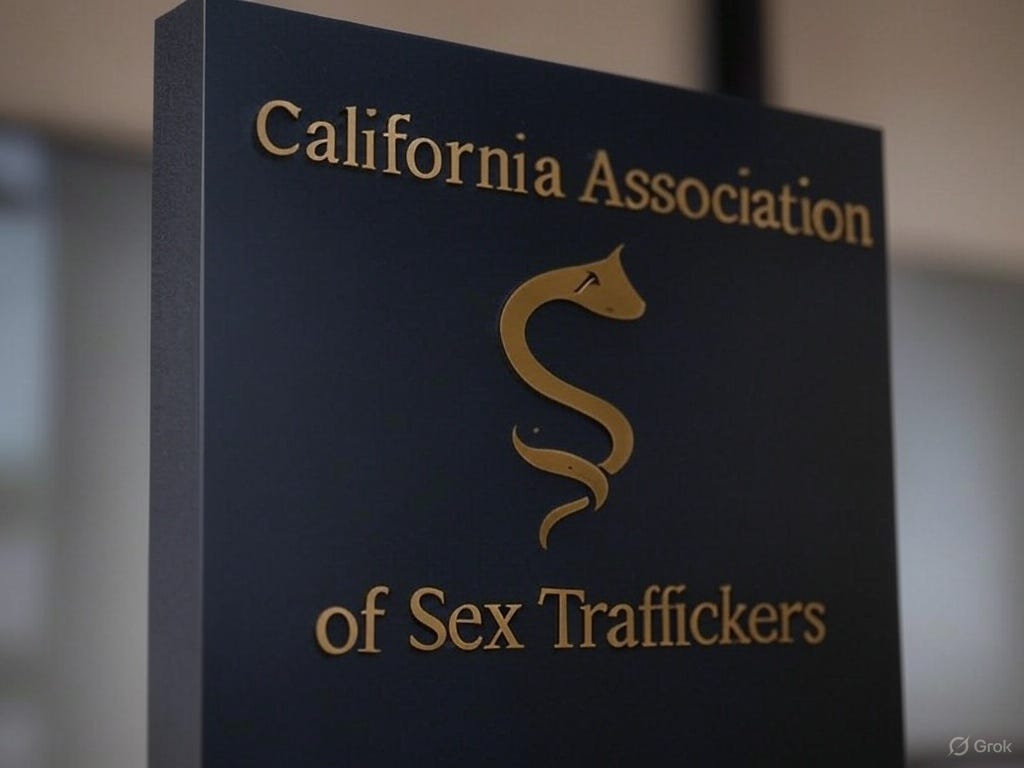Sacramento’s Sex Trafficking Loophole: A Bizarre, Shameful Step Backward
New Bill Language from Capitol Democrats Leaves Gaping Loopholes for Predators
In a remarkable display of political gymnastics, Democrats in the California Assembly have managed to turn a straightforward bill to protect vulnerable teens into a stunning "compromise" bill that raises more questions than it answers. Assemblymember Maggy Krell (D-Sacramento), a prosecutor who spent many years combating human trafficking, introduced AB 379 to close a dangerous loophole left by the legislation last year. Sen. Shannon Grove's (R-Kern County) 2024 bill increased penalties for sex trafficking of children but was gutted by hostile amendments that excluded 16- and 17-year-olds from felony protections. Krell's AB 379 sought to correct this with new legislation this year, making it a felony—period—to purchase or solicit these older teenagers for sex.
But earlier this week, Democrats in the Assembly took Krell's name off as author and replaced her with Assemblymember Nick Schultz (D-Burbank). They amended the bill to include a general statement of intent to "adopt the strongest laws" to protect 16- and 17-year-olds, but without committing to anything specific. The move was greeted with outrage by Republicans, Governor Gavin Newsom, and even Krell herself, who joined GOP members in an unsuccessful attempt to restore the felony bill. The Assembly action set off allegations of siding with predators, which was exaggerated in a deceptive Democratic advertising blitz blaming Republicans for diluting the bill.
As per ace Capitol reporter Eytan Wallace on X last night, they've reached a "compromise," the most important provision is a shocker. AB 379 will allow for the punishment of a felony for those who purchase or solicit 16- and 17-year-olds for sex—but only if the purchaser is more than three years older than the minor. If the offenders are granted probation, they must complete an education program about human trafficking. So, a 16-year-old can be trafficked by a 17-, 18-, or 19-year-old, or a 20-year-old can traffic a 17-year-old without triggering the felony charge. Since when is it acceptable for anyone, at any age, to sex traffic a minor? This isn't nuance—it's a gigantic loophole that nullifies the bill's intent.
Who is this compromise with, pray to tell? Is there a California Association of Sex Traffickers with a powerful PAC whispering in Sacramento's ear? The age difference of three years reeks of political cowardice, a half-measure meant to appease critics while allowing teenagers to be vulnerable. Current law already renders soliciting 16- and 17-year-olds a "wobbler" (a misdemeanor or felony at the prosecutor's discretion), which too frequently places the onus on the minor to establish that they're being trafficked—a high bar that lets many buyers off with what some law enforcement officials liken to a traffic ticket. Krell's original bill aimed to avert exploitation by making the offense a clear-cut felony with no exceptions. Instead, this amendment puts in place a graduated system that legalizes exploitation by those near in age, as if trafficking by a 19-year-old or a 16-year-old is less predatory somehow.
California's 16 and 17-year-olds have won unwavering protection from the horror of sex trafficking, but the story of AB 379 tells a different story. Democrats stripped these teens of their felony protections in Senator Shannon Grove's bill last year. Democrats did the same thing this year to dilute Assemblymember Maggy Krell's AB 379, only to include an odd pro-criminal carve-out with a three-year age gap that lets some predators off the hook. This pattern of resistance has Californians wondering: Why do progressive Democrats in the Capitol seem to be dragged only kicking and screaming to hold abusers accountable for their actions? And it would be interesting to hear whether Governor Newsom supports this bizarre loophole that continues to allow 16 and 17-year-olds to be vulnerable to being trafficked.



